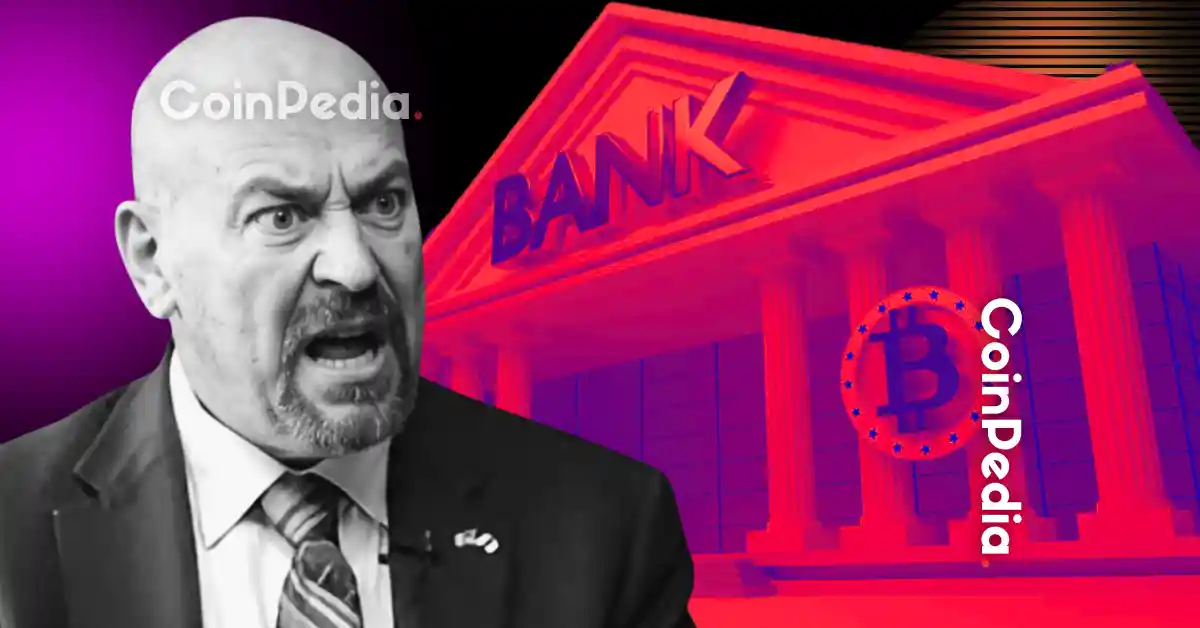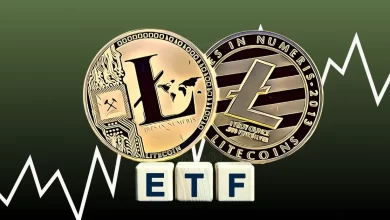
John Deaton criticizes the ABA for trying to stop Ripple and Circle from getting national trust charters.
Banking groups say the two companies don’t qualify under federal fiduciary rules.
Ripple and Circle are aligning their applications with the GENIUS Act to comply with new federal requirements.
The crypto world is once again clashing with traditional finance, and this time, Ripple and Circle are at the center of it all. XRP advocate and well-known crypto lawyer John Deaton has strongly criticized the American Bankers Association (ABA) for pressuring regulators to deny federal trust bank licenses to these blockchain leaders.
This growing dispute could shape the future of finance, as modern digital innovators challenge a banking system that’s been in place for over a century.
Crypto vs. Banks: Deaton Pushes Back
In a fiery post on X, Deaton urged lawmakers to reject what he called the ABA’s attempt to block progress. He argued that refusing Ripple and Circle a national trust charter would hold back innovation and keep the financial system stuck in the past.
Industry expert Vincent Van Code amplified Deaton’s stance, branding the ABA’s move as “purely anti-competitive.” He praised digital-first firms like Ripple and Circle for slashing bureaucracy and overhead, declaring, “The century is over. It is now time for the next Gen finance to replace the cabal.”
Ripple and Circle Make Their Move
Ripple and Circle have applied for national trust bank charters from the U.S. Office of the Comptroller of the Currency (OCC). Ripple wants to expand its payment and stablecoin services through a federal license. Circle, on the other hand, plans to create the First National Digital Currency Bank, which would hold USDC reserves under federal oversight.
Both moves are part of efforts to align with the new GENIUS Act passed in July 2025. The law requires stablecoin issuers to operate under direct federal supervision, either as banks, credit unions or specially regulated non-bank entities overseen by the OCC.
Banking Lobby Pushes Back with Legal Arguments
The ABA, along with five other financial organizations including America’s Credit Unions and the National Bankers Association, is asking the OCC to reject the applications. They argue that national trust charters should only be granted to companies that carry out fiduciary services like managing estates or assets.
According to federal law under 12 U.S.C. § 92a, Ripple and Circle do not meet that requirement since they are focused on digital asset custody and payments, not traditional fiduciary work.
Concerns About Crypto Flooding the System
The ABA also warned that approving Ripple and Circle could trigger a wave of similar applications from other crypto companies. These firms, they argue, would gain access to the banking system without facing the same strict rules traditional banks must follow, such as those under the Bank Holding Company Act.
- Also Read :
- XRP Trader Reveals 14x Gains, Predicts $5 as Next Stop
- ,
Banking groups criticized the OCC’s past guidance as well. They pointed to the now-rescinded Interpretive Letter 1179, which had allowed more flexible interpretations of fiduciary duties. The ABA now wants a clear rule: no fiduciary work means no trust charter.
Old System vs. New Ideas
Banking advocates claim that letting Ripple and Circle in could weaken financial stability and move away from the original purpose of trust charters. But Deaton and other crypto supporters argue that this resistance is just an effort to protect the status quo.
The bigger question is whether innovation will be embraced or blocked. With crypto’s potential to modernize finance, the outcome of this battle could decide who controls the future of money.
Never Miss a Beat in the Crypto World!
Stay ahead with breaking news, expert analysis, and real-time updates on the latest trends in Bitcoin, altcoins, DeFi, NFTs, and more.
FAQs
They’ve applied for national trust bank charters to expand services under U.S. federal regulation.
The ABA says Ripple and Circle don’t offer fiduciary services required for trust charters by law.
It mandates that stablecoin issuers operate under direct federal oversight, like banks or OCC-regulated firms.
Trust with CoinPedia:
CoinPedia has been delivering accurate and timely cryptocurrency and blockchain updates since 2017. All content is created by our expert panel of analysts and journalists, following strict Editorial Guidelines based on E-E-A-T (Experience, Expertise, Authoritativeness, Trustworthiness). Every article is fact-checked against reputable sources to ensure accuracy, transparency, and reliability. Our review policy guarantees unbiased evaluations when recommending exchanges, platforms, or tools. We strive to provide timely updates about everything crypto & blockchain, right from startups to industry majors.
Investment Disclaimer:
All opinions and insights shared represent the author's own views on current market conditions. Please do your own research before making investment decisions. Neither the writer nor the publication assumes responsibility for your financial choices.
Sponsored and Advertisements:
Sponsored content and affiliate links may appear on our site. Advertisements are marked clearly, and our editorial content remains entirely independent from our ad partners.








